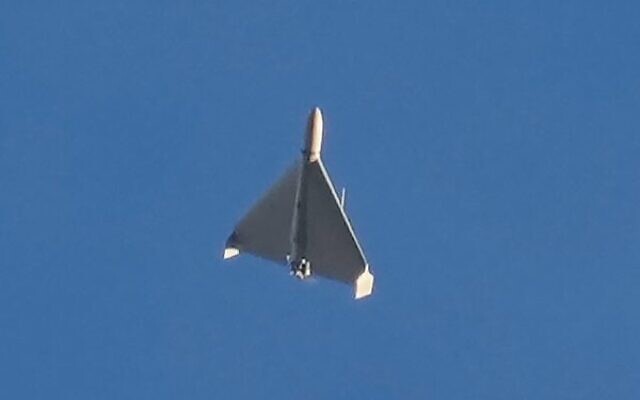Israel could provide defensive equipment
Israeli officials told Walla that the approval of the export licences was not a shift in policy, because the systems are defensive in nature and do not use any live fire

For the first time since Russia’s invasion, Israel has authorised the sale of defensive military equipment to Ukraine, according to a report last Thursday.
According to the Walla news site, which cited three Israeli and Ukrainian officials, Jerusalem approved export licences for two Israeli companies to sell electronic warfare systems with a range of some 40 kilometres that could be used to defend against drone attacks.
Russia has sent thousands of Iranian-made suicide drones to attack targets across Ukraine, particularly power stations and other crucial infrastructure.
The report said that the export licences were approved by Foreign Minister Eli Cohen and Defence Minister Yoav Gallant in mid-February. Cohen then informed Ukrainian President Volodymyr Zelensky of the decision during his visit in Kyiv.
A Ukrainian official told Walla that while the country was pleased with the development, it was still pressing Israel to supply anti-missile systems, saying: “On that, we have a gap that we are not managing to solve.”
Israel has until now resisted providing weapons to Ukraine following Russia’s invasion in February 2022. One major reason appears to be its strategic need to maintain freedom of operations in Syria, where Russian forces largely control the airspace.
Israeli officials told Walla that the approval of the export licences was not a shift in policy, because the systems are defensive in nature and do not use any live fire that can kill Russian soldiers.
“Israel is assisting Ukraine in the defence and civilian fields. Every request is being reviewed according to the defence export policy to Ukraine. We won’t elaborate on that for national security and foreign policy considerations,” the Defence Ministry told the outlet.
However, one senior Israeli official told Walla that one of the reasons Israel approved the licences was to possibly see how the defence systems perform against Iranian drones.
While the decision was made last month, the report came a day after Prime Minister Benjamin Netanyahu’s office said he had held a discussion on Israel’s policy regarding aid to Ukraine in the face of the Russian invasion and war.
The US has also been pushing Israel to increase its support, apparently including supplying weapons to Kyiv, according to reports. Western countries have poured weapons into the Ukrainian military as it holds up the Russian advance.
At the beginning of February, Russia warned Israel against supplying weapons to Ukraine.
“We say that all countries that supply weapons [to Ukraine] should understand that we will consider these [weapons] to be legitimate targets for Russia’s armed forces,” Moscow’s Foreign Ministry spokeswoman Maria Zakharova told reporters.
That warning came after Netanyahu said in an interview with CNN that he was “looking into” providing Ukraine with “other kinds of aid”.
Israel’s refusal to send weapons has contributed to the perception that the Jewish State has staked out a neutral position on the war.
As the war progresses, Israel has increasingly insisted that it is in fact on Ukraine’s side, providing over $22.5 million in humanitarian aid and setting up a field hospital to treat wounded Ukrainians in the early days of the war. Last month, it voted alongside 140 other countries for a UN General Assembly resolution drafted by Kyiv calling for Russia to withdraw its forces.
In the first months of the war, Israel sought to use its unique position enabled by its close working ties with both Russia and Ukraine to serve as a mediator between the parties.
Netanyahu pledged before entering office to review Israel’s position and also speculated that he could be called on to mediate between the sides, as predecessor Naftali Bennett tried to do.
TIMES OF ISRAEL

comments